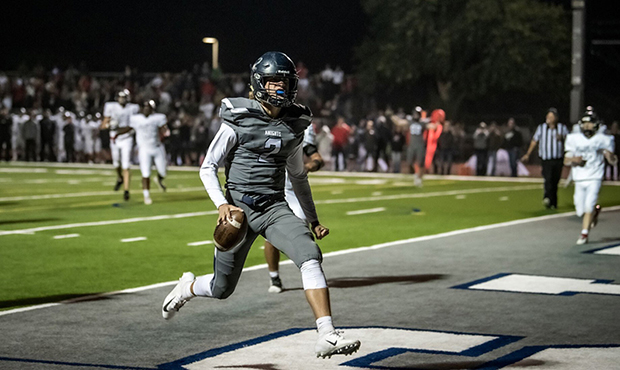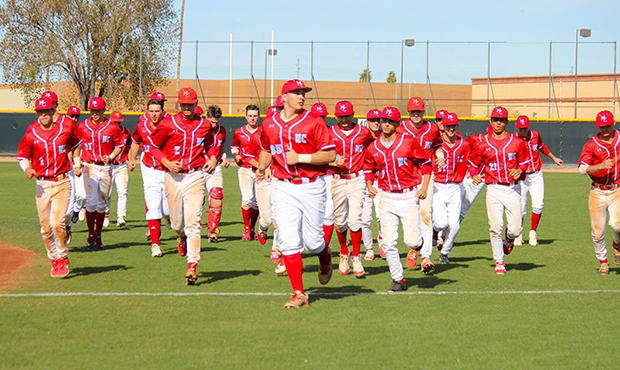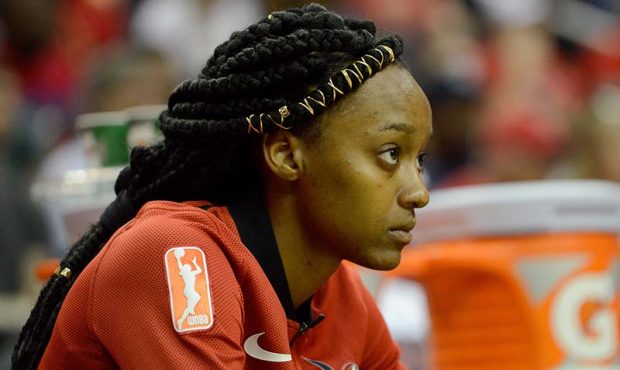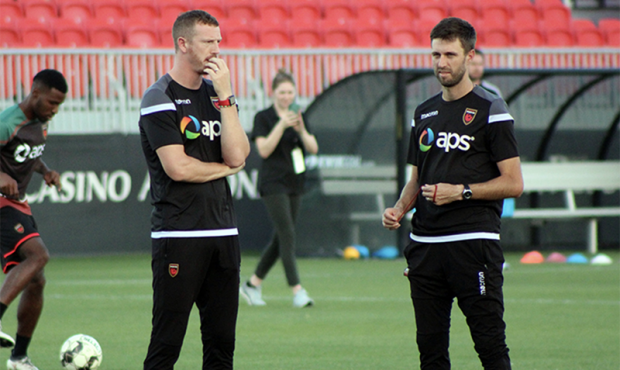As eSports grow, gamers hopes to see more support from ASU
Aug 4, 2017, 1:03 PM

A close up of a Playstation controller. (Photo by Mark Bonica via Creative Commons)
(Photo by Mark Bonica via Creative Commons)
TEMPE — As confetti rained down on Arizona State University’s eSports “Real Dream Team,” a sold-out CenturyLink Field Event Center crowd in Seattle watched the celebration unfold.
The ASU eSports team had just concluded its 2015-16 season with a national championship after beating Texas Arlington 3-0 on a nationally televised best-of-five series and won $25,000 per year in tuition for three years for each player as a result of winning Heroes of the Dorm.
Despite the success, ASU’s relationship with the sport remains complicated, while other universities around the country have embraced the multi-player video game competition. More than 30 schools offer scholarships for gamers, according to Scholarships.com, including the University of Utah, which was the first Power Five school to offer a varsity eSports program.
“The way in which eSports in general is blowing up, I don’t think there’s any reason why the biggest university in the United States should not be one of the schools pushing the next big thing,” said Adam Jimenez, the founder of Sun Devil eSports club. “Especially when we do brag about being ‘No. 1 in innovation.’”
ASU does not not have specific plans for an eSports program in the near future, but a university spokesman did say in a statement that “ASU is proud of its students who have had success in eSports, and we look forward to continuing to provide support to members of our community — and members of the gaming community at large — as this field continues its spectacular growth.”
Many involved in the sport hope a university known for its innovation will turn that support into scholarships and more.
Austin “Shots” Lonsert, a member of “Real Dream Team” and now an ASU graduate, remembers the support they received from the university after the team started to look like contenders in the tournament in 2016.
“Sure we had the social media presence, we had the baseball game where we went out after the fact and signed T-shirts and posters and stuff,” Lonsert said. “But really, we weren’t pushed at all until we actually were the favorites of the tournament.”
Since then, team captain Michael Udall left ASU to pursue a career as a professional video game player. He has more than 4,000 followers on Twitter and more than 8,000 who subscribe to his live stream on the popular video game streaming service Twitch.
Meanwhile, universities across the country have been establishing eSports programs and scholarships.
One of the most notable is the University of California-Irvine. Not only did UCI invest in an eSports program beginning in the fall of 2016 but built a gaming center for its teams that allows “non-team students a chance to participate in fun leisure activities on campus while balancing academic and research endeavors,” according to a UCI news article.
Stephens College in Columbia, Missouri, became the first all-women’s school to announce a varsity eSports program that will begin in the fall, with scholarships that started being offered in April.
Disney recently announced that they are considering stepping into the world of eSports by hosting eSport tournaments and events at the ESPN Wide World of Sports Complex in Florida, according to Forbes.com.
Arizona State provided its team with a training room on the Tempe campus following its 2016 championship win.
“They wanted to create an entire room just for us,” Lonsert said, “with five computer set-ups, whiteboard for strategy and it was like a really nice room on campus.”
Lonsert never saw the room though and was never notified when it was completed.
“I literally had no idea if it was finished until we received an email saying, ‘If you’re not going to use the room we’re going to take it away from you.’ And I was like, ‘I didn’t even know it was ready so…’”
Lonsert notes that the miscommunication may have been because the ASU administration was in contact with Udall, who started focusing on his professional career, something Lonsert understands. Udall was unavailable for comment.
“There is a huge student disconnect between the student base and the eSports club, or the scene as a whole, in general,” Lonsert said.
This disconnect results in multiple ASU eSport teams registering for collegiate competitions like Heroes of the Dorm, which is what happened this past year.
“There is no public knowledge of this happening, when signups are or when tryouts start happening for teams.”
With all the confusion and what some players believe is limited support from the administration, many of the eSport events on campus come from grassroot efforts. That was the case with Jimenez, an entrepreneurship major at ASU who founded Sun Devil eSports club and is president of the organization.
Sun Devil eSports was established as an ASU organization in the fall of 2016. Although they are a relatively young club, Jimenez said that in the last year, they have approximately 50 members registered on Sun Devil Sync, Arizona State’s online student organization registration web app.
However, the group mostly communicates on a gaming chat board through Discord where they have about 150 members registered on there and around 200 members on social media, Jimenez said.
He believes that the university will need to start establishing a program within “at least five years.”
“The way in which eSports in general is blowing up, I don’t think there’s any reason why the biggest university in the United States should not be one of the schools pushing the next big thing,” Jimenez said. “Especially when we do brag about being ‘No. 1 in innovation.’ ”
Lonsert knows of the difficulties eSports clubs have had.
“It’s been kind of all over the place for us bragging that we’re No. 1 in innovation and bringing up that we have a national championship video game team,” he said.
A look around Wells Fargo Arena in Tempe shows a mural of various successful sport teams.
Yet two years since bringing home a national title that aired live on ESPN, the first-place innovative eSports team is not included or recognized.
As an entrepreneurship major, Jimenez recognizes that the ASU administration wants to see the numbers that prove why investing in eSports would make sense.
“I understand wanting to have the data and those points,” Jimenez said. “How many people can we expect? What’s the return we can expect? How many people watch these events?”
Jimenez uses Sun Devil eSports events as a way to collect numbers by having students who participate or come watch their tournaments sign in.
“I understand it’s a scary market to jump into. It’s not necessarily confirmed it’s going to be a successful industry,” Lonsert said. “But it’s growing and there’s interest so them being weary of jumping head first is understandable.”
However, Jimenez and Lonsert both see that the market is there in the collegiate scene.
Through running Sun Devil eSports, Jimenez finds that students join their organization because they want to feel attached to ASU.
“I think ASU should definitely step in, and I hope they do,” Jimenez said, “because they have a lot of resources and talented people out here who don’t even know eSports or they do want to get involved.
“I know randomly playing video game on my own, I see a lot of people that want to get involved and actually joined because we played one game, one five-minute game together. And I think that if the ASU administration stepped in that one person would be 15, 100.”
At one point, the NCAA looked into eSports and Lonsert believes that the college connection is the market that could draw the most fans. The National Association of Collegiate Esports was formed last summer and hopes to be similar to the NCAA and its governing body.
“Fans would rather watch their school compete than some sort of random organization that they have no attachment to,” Lonsert said.
“It’s easier to be attached to a college team than say the Philadelphia Eagles,” said Lonsert, using his favorite football team as an example. “The only way I’m going to root for the Philadelphia Eagles is if I lived in Philadelphia.
“But whereas college sports it’s like ‘Oh, you went to that college?’ – especially ASU, it’s one of the most popular schools — and have pride in where you went to school.”
In an inquiry conducted by the Public Insight Network (PIN) Bureau, fifty voluntary participants responded to questions ranging from their interest in eSports to their involvement within the eSport community.
Of the fifty participants, 80 percent who responded were self-identified between the ages of 17 and 25. For those between the ages of 17 and 19, 52.8 percent said they play or participate in eSport games versus the 46.2 percent who watch live streams of others who play.
Meanwhile, 40 percent of those who are 20 to 22 play an eSport game versus the 55 percent of the age group who watch. (The other 5 percent of this age group reported they neither watch or play.)
From the same PIN inquiry, 76.9 percent of those between 17 and 19 said that a university with an eSports program — despite whether they watched or played — would or did impact their college decision.
One hundred percent of the participants in the age groups of 17 to 19, 23 to 25, 26 to 27 and 30 years or older said they would support their school’s eSport team as opposed to 85 percent of those in the 20 to 22 age group.
This inquiry was open to all voluntary participants and 68 percent of the responses came from Arizona.
The interest appears to be there. Student gamers hope Arizona universities across the state will soon embrace the popularity and join with the other established universities in creating eSport programs.






Comments